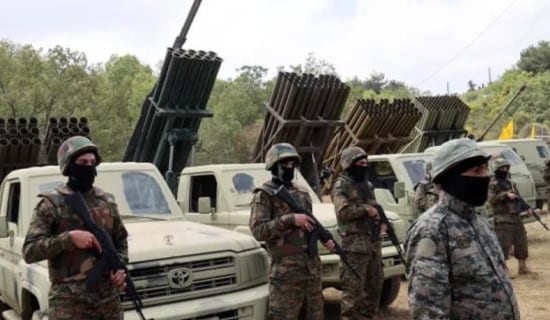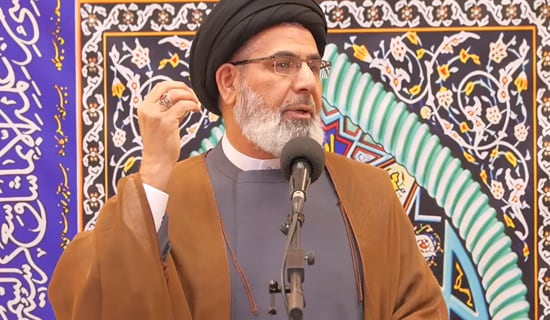Following is an interview with General Diyaa Hussein Sahi, head of the Baghdad Police's Major Crime Unit. The interview aired on Al-Arabiya TV on January 7, 2011.
To view this clip on MEMRI TV, visit http://www.memri.org/legacy/clip/2773.
"The U.S. Forces Examined this Information, so We were Surprised by what Happened in Sweden"

Interviewer: "According to information from your counter-terrorism headquarters, which was passed on to Interpol or to the U.S. forces, Al-Qaeda was planning to carry out an attack in a European country or in the U.S.. What information did you give the U.S. forces with regard to this operation?"
General Diyaa Hussein Sahi: "One of the imprisoned emirs of Al-Qaeda said, during his interrogation, that the carrying out of an attack at the end of 2010 would be the responsibility of the Islamic State of Iraq [Al-Qaeda]. This was important information, and we gave it our full attention.
"He said that he had held a conversation with the Emir of Al-Qaeda. The U.S. forces... The Al-Qaeda emirs always seek answers to questions. He said: Since the U.S. forces have withdrawn, who are we fighting?
"His Emir answered: We will pursue the occupiers to their own homes, and we will strike them on their own turf."
Interviewer: "This conversation took place between the Emir of Al-Qaeda and a [regional] emir?"
General Diyaa Hussein Sahi: "Yes, one of the regional emirs.
"We asked him to elaborate on this – for example, from where he got this idea – and he said that it was difficult to ask your emir about what would happen. But he mentioned several issues that he noticed or discussed with his Emir – that the attack would take place within the U.S., or in a European country, or in Britain, and that they were preparing a specific person for this operation.
"We tried to get more information out of him, but we had reached a dead end with him. That was all the information he had. Of course, we passed this information on quickly, for fear that this operation would take place, and that we would be held accountable for this.
"The U.S. forces examined this information, so we were surprised by what happened in Sweden. We had passed on the information to the U.S. forces, but they... We had also passed on to our superiors in the Interior Ministry that Al-Qaeda was planning such an operation." [...]
"After the Failed Attack, It Became Clear that One of Our Detainees had Known about Taimour [Al-Abdaly, the Stockholm Bomber]"
General Diyaa Hussein Sahi: "After the failed attack, it became clear that one of our detainees had known about Taimour [Al-Abdaly]."
Interviewer: "How did you know?"
General Diyaa Hussein Sahi: "One of the accused, from the Al-Qaeda leadership, said that Taimour had entered Iraq via Turkey, and reached Mosul, where he had trained for three months. As you know, not everybody can prepare an explosives belt or explosive device. He trained in Mosul for three months, and then he left Iraq. This person said that he did not know that [Taimour] was planning an attack. He thought this was just a recruit to the organization, who had come merely to undergo training."
Interviewer: "Did he meet with him and talk to him?"
General Diyaa Hussein Sahi: "No, he had only heard about him. Note that Taimour has an exceptional personality."
Interviewer: "In what way?"
General Diyaa Hussein Sahi: "His personality is that of someone who studied in a European country. Even in terms of his personal status, he is different. Many Al-Qaeda members are uneducated, uncultured, and ignorant people, who have memorized parts of Koranic verses and hadiths. [...]
"I think that [Taimour] joined Al-Qaeda through the Internet, and that many of the people who came to fight in Iraq joined Al-Qaeda through an acquaintance with somebody who has these notions, or by means of e-mail correspondence. Many of the suicide bombers came to Iraq this way.
"This man entered Jordan. According to our information, he entered Jordan to take care of his sick daughter. According to our information, this was in early 2009. The bottom line is that he carried out an operation. If we return to the statements of the accused who confessed to this, we see that Al-Qaeda's strategy has become to carry out operations outside Iraq."
Interviewer: "Let me ask you this question: Is Al-Qaeda capable today of carrying out operations outside Iraq?"
General Diyaa Hussein Sahi: "Any organization can carry out any operation abroad." [...]








